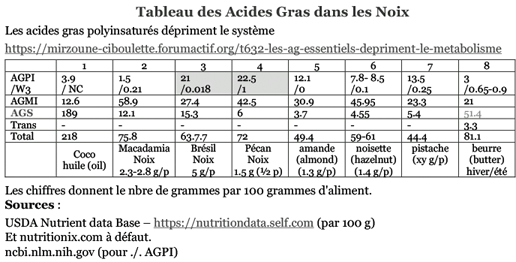How much iodine do you take?
-
Im taking 1 mg a day, but might soon go on 2 mg a day to make up for a longstanding deficiency
-
@thyroidchor27 25g
-
I take zero. I agree with Dr. Peat's assessment. I would use potassium iodide in gram quantities for something healthwise, but not interested in normally taking iodine on a regular basis.
-
@Cezar4911

-
@thyroidchor27 brahmin terra incel boss
-
@thyroidchor27 about 300mcg
I don't see why you need more
-
150 mcg, upwards towards 250 mcg 10-15 days later.
Now back to 150 mcg twice a week.
But when there is infection, I increase the frequency to every 2 days.
But before taking a kelp tablet (titled), you'd better improve selenium intake to protect thyroid gland. 100 mcg. Not only in case of Hashimoto.
Several studies have shown that supplementing with selenium reduces thyroid peroxidase antibodies (TPO) and the severity of hypothyroidism symptoms (not recognized / not well measured when you're borderline).
Not only when TPO-antibodies are present but also because selenium has a synergistic relationship with iodine.
And please, don't take Amazonia nuts on a regular basis to get Se. -
@thyroidchor27 Why would you take iodine?
-
@Serotoninskeptic It mogs
-
@thyroidchor27 Its so easy to get enough from diet tho
-
@Serotoninskeptic hard to get 5 mg everyday
-
@LucH said in How much iodine do you take?:
And please, don't take Amazonia nuts on a regular basis to get Se.
why?
-
Friends, I take iodocasein 200 micrograms daily, is it safe? Thank you!
-
@thyroidchor27 said in How much iodine do you take?:
@Serotoninskeptic hard to get 5 mg everyday
Why no Amazonia nuts every day for Se?
Brian Peskin considers 3 g of PUFA to be optimal. Personally, I set the bar at a maximum of 5 g for practical reasons (w6/w3 ratio at 4/1) (between 1/1 and 10/1 is admissible, if the last ratio is not too frequent).
Polyunsaturated fatty acids depress the system
https://mirzoune-ciboulette.forumactif.org/t632-les-ag-essentiels-depriment-le-metabolisme
Note: In French (with English sources, among which RP) (translator needed).
Table with kinds of fatty acids and % in some nuts

The numbers give the number of grams per 100 grams of food.
You see that only Brazil nuts and pecan nuts weigh well over 5 g for 1 oz., the limit that I set for PUFA. As a portion of almond is 30 g (1 oz. = 28 g), we obtain 4 g of PUFA per portion of almonds (preferably sprouted).
See the link for other foods (meat, eggs, etc.).
https://mirzoune-ciboulette.forumactif.org/t1419-les-omega-6-oxydes-sont-coupables-pas-le-cholesterol-ldl#16114
According to the United States Department of Agriculture – USDA, Brazil nut contains (per 100 g) 14.5 g of protein, 15.1 g of carbohydrates, 63.7 g of total fat (15.3 g SFA, 27.4 g MUFA, and 21 g PUFA), and 7.9 g of dietary fiber, for a total of 2,690 kJ [42].
Note: If we limit ourselves to 3 Brazil nuts per day, this will provide:
15 g Brazil nuts (3 nuts)
Total fats: +/ 10 g
PUFA 3.6 => Too high.
MUFA 3.6
SFA 2.4
To get selenium (100 mcg) from nuts (3-4 nuts), we need the brown peel of the Brazil nut. Selenium is found near the peel and especially in the peel. So, I won’t buy white nuts without at least 1/3 of the brown peel. And of course in a store where there is a good rotation and not too exposed to heat or light.
Comment: If you add the PUFAs from meat and pasta / bread, there will be storage in the adipocytes. Not the ideal way to anticipate a flashback (AA cascade). -
I don't take iodine. I think Dr. Peat was right and it is generally not needed, and additional may suppress thyroid function.